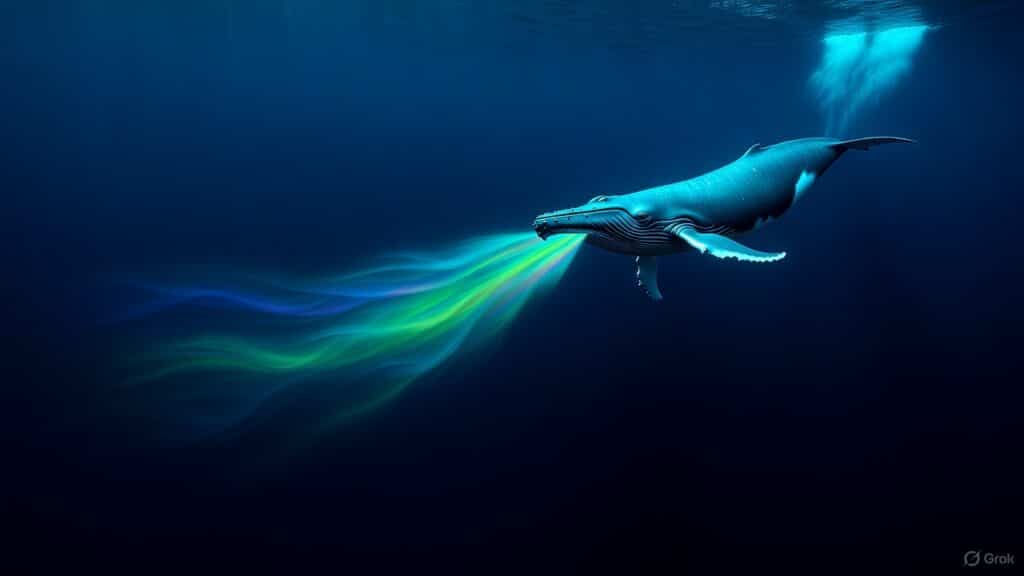Have you ever heard of the mysterious songs of whales? Deep in the oceans, these giant creatures make magical sounds that travel for miles. Scientists call them “whale songs,” and they are one of the most fascinating mysteries of the sea. But why do whales sing underwater? Do they sing for fun, for friends, or for survival? Let’s dive in and discover the wonderful world of whale songs!
What Are Whale Songs?
Whale songs are a series of sounds made by whales. These sounds are not random; they are like musical patterns with rhythm, pitch, and melody. Some whale songs can last for a few minutes, while others go on for hours!
Unlike human songs, whale songs are not made with words. Instead, they use clicks, whistles, and long, deep sounds. Imagine a mix of a flute, a drum, and a violin playing underwater – that’s how a whale song feels.
How Do Whales Make These Sounds?
Whales don’t have vocal cords like humans, so how do they sing? They push air through special parts of their nasal passages, which vibrates and creates sound. Since whales are mammals, they breathe air through blowholes, but they can still “sing” while holding their breath underwater.
The sound then travels through the water – and here’s the amazing part – it can go hundreds of kilometers because water carries sound much better than air! That means a whale in one part of the ocean might be heard by another whale far, far away.
Why Do Whales Sing?
This is one of the biggest mysteries marine scientists are trying to solve. But they have some exciting clues:
- Communication – Whales sing to talk to each other. Since the ocean is huge and dark, sound is the best way to stay connected.
- Attracting Mates – Male whales often sing long and beautiful songs during mating season, almost like a love song to impress female whales.
- Navigation – Whales may use sound to “see” the ocean around them. Just like dolphins use echolocation, whale songs might help them sense their surroundings.
- Group Harmony – Some scientists believe whale songs help whales swim in groups, guiding them to stay together during long journeys.

The Most Famous Singers – Humpback Whales
While many whale species make sounds, humpback whales are the best-known singers. Their songs are long, detailed, and even change over time. What’s amazing is that all the male humpbacks in one region sing almost the same song, but after a few years, they change the tune together!
It’s like a giant underwater orchestra where every humpback knows the latest hit song.
How Scientists Study Whale Songs
Scientists use underwater microphones called hydrophones to listen to whales. By recording their songs, they learn how whales live, travel, and interact. Some songs travel across entire oceans, giving researchers clues about migration routes and whale behavior.
Even NASA once recorded whale songs and sent them into space on the Voyager spacecraft in 1977. They believed if aliens ever found it, whale songs would show them the beauty of life on Earth.
Do Whales Enjoy Singing?
We don’t know for sure, but scientists believe whales may enjoy their own songs just like humans enjoy music. Singing might release happy chemicals in their brain, making them feel calm or connected. Some researchers say whale songs are like “ocean art” – a natural way of expressing themselves.
Whale Songs and the Ocean Environment
Whales depend on sound to survive. But modern oceans are filled with human-made noises – from ships, submarines, and oil drilling. This “noise pollution” can disturb whales, making it harder for them to communicate or even find their families.
That’s why many organizations around the world work to protect whales and keep the oceans quieter. Saving whale songs means saving a unique language of nature.

Fun Facts About Whale Songs
- Whale songs can be longer than any human song, sometimes lasting for 30 minutes or more.
- Blue whales make the loudest sounds of any animal on Earth – louder than a jet engine!
- Whales can repeat the same song pattern for hours without stopping.
- Baby whales learn songs from their mothers, almost like learning a lullaby.
- Each ocean has its own “regional whale song,” just like humans have different languages or accents.
Can We Understand Whale Language?
Scientists are still trying to decode whale songs. Some believe it’s as complex as human language, while others think it’s simpler, more like patterns of signals. Either way, whale songs remind us that animals have unique ways of talking that are still mysterious to humans.
One day, we might even use artificial intelligence to fully translate what whales are saying – maybe their songs are telling stories we’ve never heard before!
Why Kids Should Care About Whale Songs
Whales are the gentle giants of the sea, and their songs are like treasures of nature. By learning about them, kids can understand the importance of protecting oceans. Every whale song is a reminder that life in the ocean is rich, beautiful, and worth saving.
If whales stop singing, the oceans will lose one of their most magical voices. By caring for the environment, you help whales keep singing for generations to come.
Conclusion
Whale songs are not just sounds – they are mysteries of the deep sea. They help whales communicate, find partners, and navigate their watery world. These songs are powerful, emotional, and even artistic.
Next time you hear a recording of a whale song, close your eyes and imagine being deep under the ocean, surrounded by echoes of the world’s largest singers. You’ll realize that the ocean isn’t silent – it’s full of music!

